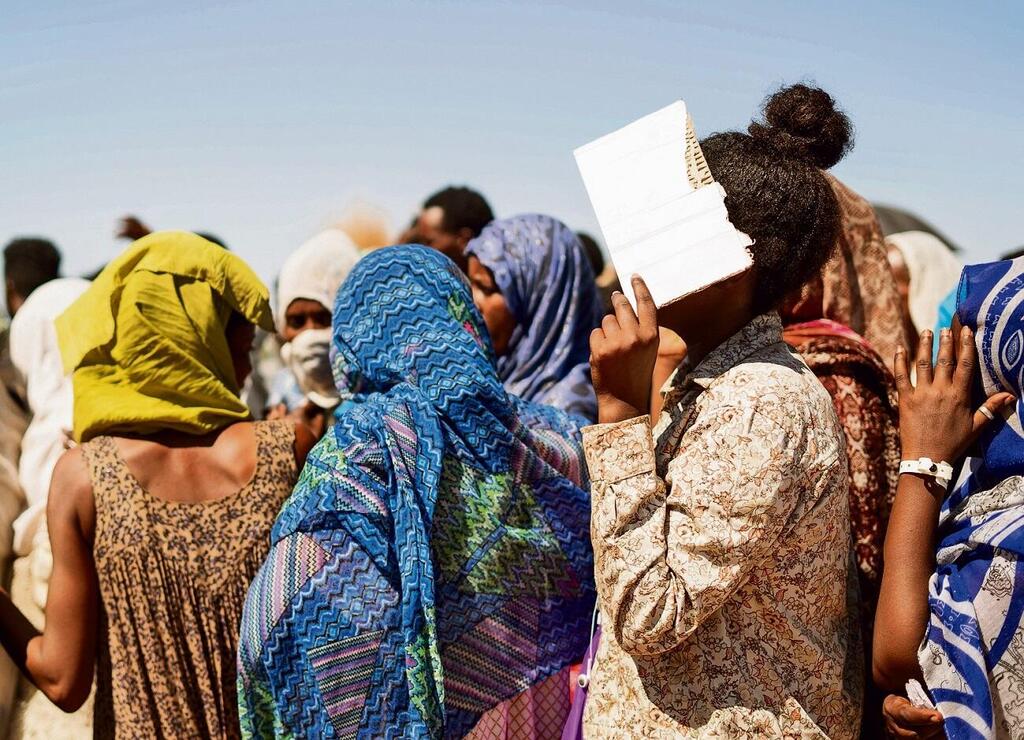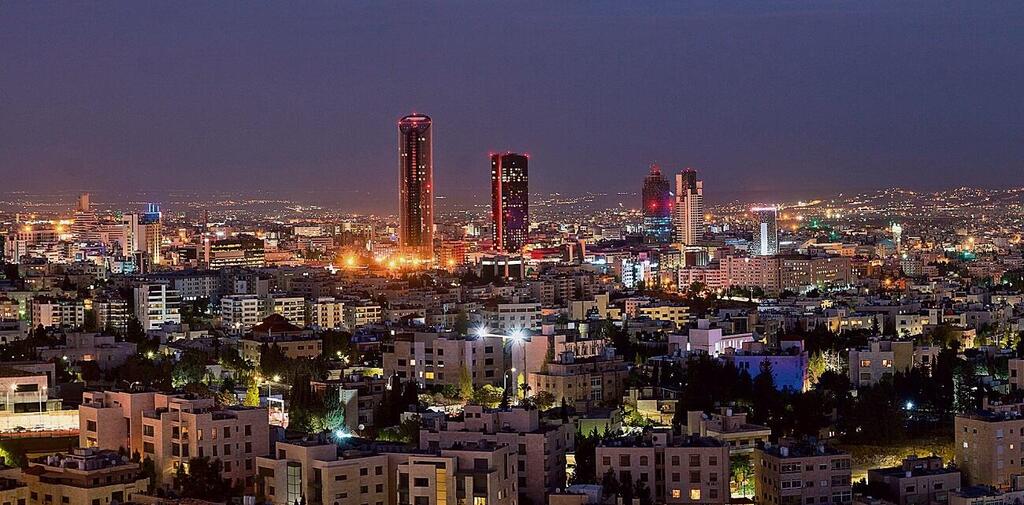Getting your Trinity Audio player ready...
Upon the outbreak of the 2020 Tigray war which saw Ethiopian federal government and Eritrean forces fight against the Tigray People's Liberation Front, one woman decided to flee to Jordan to work as a housemaid, hoping to return home one day when the tempest of war had subsided.
"I saw my whole family getting murdered," she recounts. "When I was in Addis-Ababa, I was offered a chance to work in Jordan as a housemaid on a two-year contract. I jumped on the chance."
However, reality was far less welcoming. When she arrived, her papers were confiscated. "I was driven to a villa a few hours away from the airport, and was told that this family now owns me," she says.
"My freedom was lost. They took away whatever belongings I brought with me and forced me to work 15-20 hours a day. When I did sleep, it was on a dirty mattress in a shed. The woman of the house and her daughter would frequently beat me if I didn't work fast enough. I was allowed to eat bread and yogurt twice a day and that's it. I'm severely malnourished."
The wounds on her frail body were clearly visible. "That's from all the beatings I took. It never properly healed. After 18 months, my health deteriorated badly. One day the woman woke me up and told me to get into a car with blacked-out windows. I didn't even have shoes on. I was driven for hours and eventually arrived at some sort of a building where a man waited for me.
"I was forced to do everything he wanted and he hurt me badly for days. After that, he took me in the car and dropped me off in the middle of nowhere at night. When morning came, a man speaking in Arabic found me and told me I was in Jerusalem and directed me to the Ethiopian church, where they told me where the refugee center was and gave me some money to get there."
Unfortunately, her case is not unique. It's systematic human trafficking. About 30 Ethiopian women arrived in Israel via Jordan in recent months, all fleeing war in Etiopia's Tigray region.
They're subjected to imprisonment, beatings, sexual assaults and subhuman living conditions. Malnourished and exhausted, they find themselves in the West Bank or Jerusalem after the family they worked for determined they're no longer fit for work.
"The characteristics of all these stories are similar," says Adv. Dina Dominitz, head of the Israel National Anti-Trafficking Unit. "It's a new, brutal smuggling route. All came to Jordan due to the war, thinking they'll be able to go back.
"While they were sent legally, some forged their papers to be considered old enough to work. They tell stories of two or three years worth of humiliation, mental and physical abuse and inhumane living conditions. They tell stories of serving as a slave, both sexually and in terms of rigorous manual labor. Eventually, they end up in Israel via the West Bank."
The investigation is still developing, and in some instances, it's difficult to ascertain when they were transferred to Jordan or arrived in Israel, since they're driven in the middle of the night, not even knowing they've crossed the border.
Some live with a man who picked them up, others stay in a small apartment with several men. They're often offered to become prostitutes and at least one was forced into marriage.
Alexandra Rott, head of the Hotline's Crisis Intervention Centre, knows many of these women on a personal level. "It started in 2021. We knew something was going on, but we hadn't deduced the scope of the phenomenon yet," she says.
"Before the war, things were very different. The women went through a course showing how to fold laundry, what uniform to wear, what their rights and obligations were. They could even change families and call the agent if they were no longer interested in working. The war turned it all for the worse.
The employers in Jordan figured that since they had nowhere to return to, they could do whatever they please with them. That's how the pattern of being offloaded to different families emerged, all with horrible conditions. Agencies in Addis-Ababa had collapsed so they had no one to call for help."
In October 2022, the volume of calls to the refugee hotline ballooned. "That's how we understood the magnitude," she says. "One woman had arrived with severe signs of prolonged abuse, burns all over her body. When they get in that situation, the families discard them like trash."
Another Ethiopian woman tells of her ordeal, after signing a two-year contract to work in Jordan before the war started. "Up until the war, I was doing fine. It was hard work but I knew I could leave if I wanted to. I had my phone. I could call the agency and ask to be transferred," she says.
"Then the war started and they stopped paying me, telling me I had nowhere to go back to anyway. The mother began physically abusing me, kicking me and hitting me with the broom whenever I asked to eat or rest.
She'd take me to her sister's twice a week to clean the house, and the sister's son would force himself on me. His mother closed the door and just let it happen," she added.
"At one point I got sick. I wasn't getting any better. The mother woke me up and told me she was taking me to her sister again. The driver dropped me off somewhere, told me he'd come right back and left. I waited there for a long time.
Eventually, two men arrived in a car, telling me they were taking me somewhere safe. Once again, I was duped. They raped me and then tossed me out. A woman eventually found me and took me to Jerusalem."
Rott is quite familiar with this pattern of behavior. "All those women say they've lost contact with the outside world. Some didn't even know of the war in Tigray. In Jordan, they were deprived of proper nourishment and medical service. We don't ask, but some simply tell us of the gruesome sexual assaults they were subjected to," Rott says.
"If they resisted sex with the husband, the wife would beat them. Some were transferred to an apartment with several men who raped them and then gave them back to the family. They were treated like they're nothing."
How do they end up in Israel?
"Usually, it's the families themselves that transfer them. Some cry and beg until they're released. Their medical situation deteriorates so badly the families just cut their losses and bring in someone new," Rott adds.
"They're often transferred between men until one of them finds his humanity and releases them somewhere. Some pay smugglers to get them out of Jordan, but they often fall prey to more sexual abuse by a different group of men who sometimes pose as police officers.
Without a passport and a work permit, you're completely exposed and anybody can do what they want with you and no one would even know where you are."
Rott says they often arrive in Israel in the dead of winter without proper clothing to shield them from the cold. "They're not allowed to wear shoes in the house so when we find them, they're often barefoot with barely any clothes on," she adds.
The Labor, Social Affairs and Social Services Ministry operates several shelters for these women. Secure, discreet locations where they're given food and medical attention and mental evaluation.
One of the most severe cases recorded was a 16-year-old girl who was found in Jerusalem by another woman who was abused. The teenager left her home for Jordan when she was only 14. The woman found her without any clothes, shivering in the cold, and bought her a tracksuit and some falafel to eat before bringing her to the shelter.
"When she arrived at the shelter, she was immediately embraced by the other women," Rott says. "She held her and told her she was safe. It was a very emotional moment."
Adv. Inbar Barel, head of the hotline's legal department, says some women do not wish to be acknowledged as human trafficking victims since it's a major taboo that could prevent them from returning to Ethiopia. They prefer to lie so they wouldn't be considered violated.
"It wasn't always like this, but now Israel does a lot for these women with these shelters, but outside of that, this country has no real answer to provide on a systemic level for victims of human trafficking. There's no one to help them with authorization and rehabilitation," she says.
"The shelter cannot provide a sanctuary for every single type of victim," Rott adds. "Some are afraid of being stigmatized, others of being locked up again. Israel must do better and provide some sort of a structure for all types of trafficking victims, otherwise, they're exposed to falling prey again."
One woman wanted to join her sister who was already working in Jordan, hoping to come back home when the war ended. "As soon as I arrived, they took all my papers. I was taken to a big house with 35 family members. I was ordered to clean up after everyone. I slept in the toilet and was often raped. I couldn't call anyone. I found out about the war through the TV that was on as I was cleaning," she recounts.
Studies show war refugees in poor financial states are the most likely to fall prey to human trafficking. "Women often pay the price of war before anyone else, falling victim to terrible trafficking schemes," says Susan Dessouki, a senior official at the Welfare Ministry. "This past year we've dealt with dozens of women from various warzones, many from Ethiopia with very similar stories. They're often minors."
What do they suffer from when they arrive?
"They get to us with PTSD, some aren't even sure how old they are. They feel persecuted and scared of being hurt again. With the war and then slavery, they fall victim twice. Almost all of them lost family in the war and they scour social media for any hint of their relatives' whereabouts," she says.
Meanwhile, Israeli law enforcement fails to find the proper response to these human trafficking rings. "Prevention and enforcement are practically non-existent," says Adv. Barel. "No investigations are launched and no indictments are submitted. The police have plenty of information and can turn over every rock to tackle this, but they don't."
Alexandra Rott echoes Barel's concerns. "The police are not doing enough. Whatever investigations are performed are often closed without updating anyone, including the victims. Sometimes the women are interviewed in such a way that makes them feel like they're at fault."
A police unit dedicated to handling human trafficking was disbanded in 2011, leaving just a few officers to monitor the issue. This leads to neglect, and Israel hasn't done nearly enough to provide a structural framework to efficiently absorb the mounting number of cases.
Reports show a huge gap between the number of interrogations performed and the number of indictments served. With 800 investigations launched between 2017 and 2021, only 155 indictments were served with regard to human trafficking and peripheral offenses, such as the running brothels full of such victims.
The U.S. State Department publishes periodic reports on human trafficking worldwide in which it ranks each country's handling of the issue on a four-tier system. In the latest report, Israel has fallen from tier one to tier two. It is stated that while the Jewish state continues operating shelters for victims, those efforts had not been properly sustained.
While the Israeli government had approved a national plan to counter human trafficking four years ago, the budget for it still has not been allocated.
"Israel has been doing well when it comes to providing an answer to human trafficking victims for nine years when we were in the top tier," says Dominitz. "But we let our foot off the gas and things deteriorated. In September, the government authorized a plan to combat human trafficking and we aim to get back in the top tier.
While human trafficking keeps evolving in terms of its practices, there's one constant and that's the issue of treating humans like they were property for financial gain while depriving them of their liberty and failing to provide adequate nourishment and medical care. We will tirelessly continue our efforts to combat this phenomenon with every tool at our disposal."
Israel Police said in response to a Ynet request for comment that "When the women arrived from Ethiopia, they were immediately recognized as human trafficking victims and were transferred to a proper shelter for protection and medical care. It's worth noting that many of these victims refuse to cooperate and with those that did, not enough evidence was compiled in order to sustain an indictment. Our counter-trafficking unit continues to do the utmost to combat human trafficking and provide adequate care for victims."






